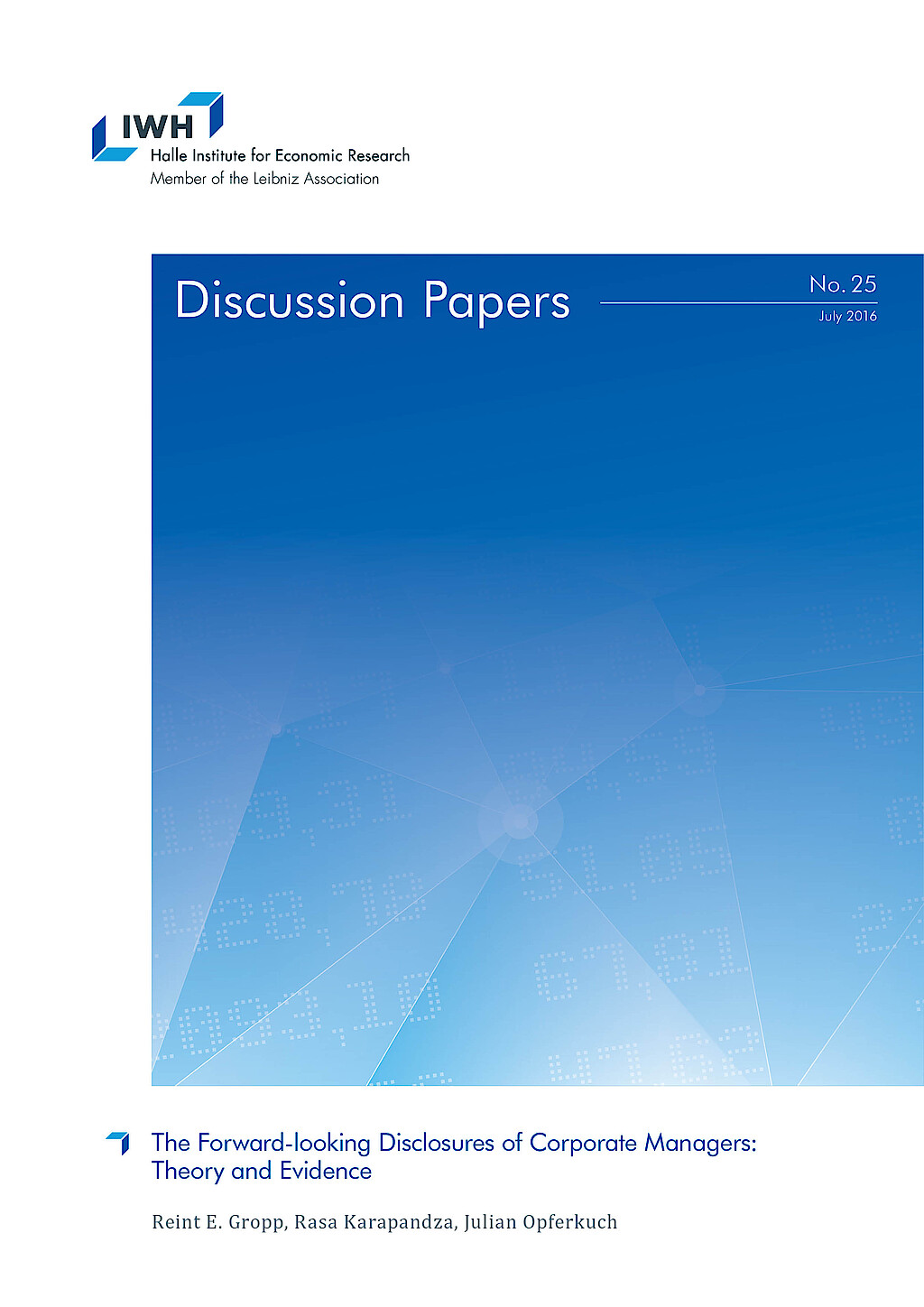
The Forward-looking Disclosures of Corporate Managers: Theory and Evidence
We consider an infinitely repeated game in which a privately informed, long-lived manager raises funds from short-lived investors in order to finance a project. The manager can signal project quality to investors by making a (possibly costly) forward-looking disclosure about her project’s potential for success. We find that if the manager’s disclosures are costly, she will never release forward-looking statements that do not convey information to external investors. Furthermore, managers of firms that are transparent and face significant disclosure-related costs will refrain from forward-looking disclosures. In contrast, managers of opaque and profitable firms will follow a policy of accurate disclosures. To test our findings empirically, we devise an index that captures the quantity of forward-looking disclosures in public firms’ 10-K reports, and relate it to multiple firm characteristics. For opaque firms, our index is positively correlated with a firm’s profitability and financing needs. For transparent firms, there is only a weak relation between our index and firm fundamentals. Furthermore, the overall level of forward-looking disclosures declined significantly between 2001 and 2009, possibly as a result of the 2002 Sarbanes-Oxley Act.





